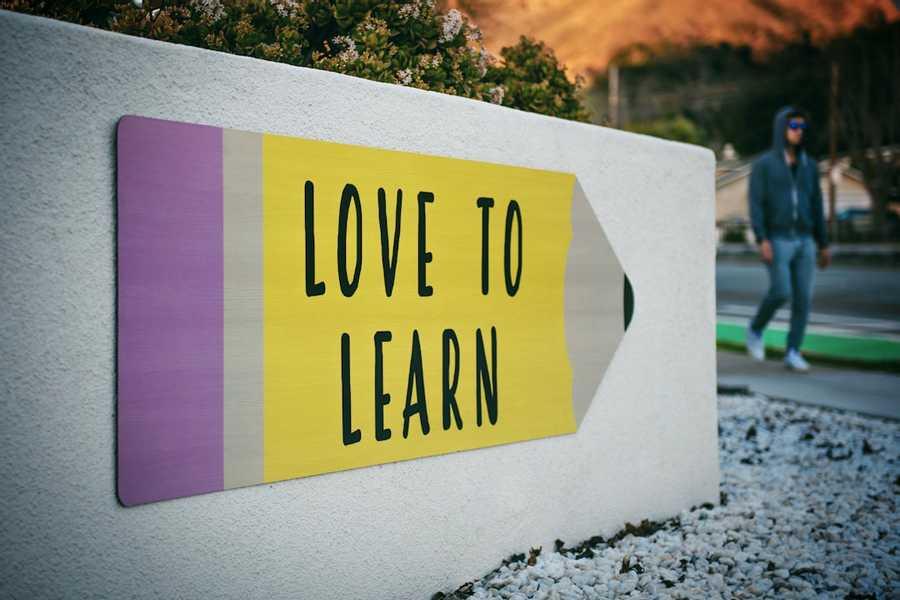Make Learning a Part of Your Daily Routine
Curated from: hbr-org.cdn.ampproject.org
Ideas, facts & insights covering these topics:
12 ideas
·1.78K reads
28
Explore the World's Best Ideas
Join today and uncover 100+ curated journeys from 50+ topics. Unlock access to our mobile app with extensive features.
Capacity For Learning
Our capacity for learning is becoming the currency we trade on in our careers. Where we once went to work to learn to do a job, learning now is the job. Adaptive and proactive learners are highly prized assets for organizations, and when we invest in our learning, we create long-term dividends for our career development.
52
302 reads
Infinite Learning Curve
Reid Hoffman, the founder of LinkedIn, shared that when assessing founders of potential investments, he looks for individuals who have an “infinite learning curve”: someone who is constantly learning, and quickly.
51
232 reads
Learning At Work
Since we spend so much of our time, energy, and efforts at our day jobs, they provide the most significant opportunities for learning. The challenge is that we don’t invest intentionally in everyday development — we’re so busy with tasks and getting the job done that there’s no space left for anything else.
50
165 reads
Deprioritizing our development
Deprioritizing our development is a risky career strategy because it reduces our resilience and ability to respond to the changes happening around us. Here are three ways to take ownership of your learning at work.
50
179 reads
Learn From Others
The people you spend time with are a significant source of knowledge. Creating a diverse learning community will offer you new perspectives and reduce the risk that you’ll end up in an echo chamber. Set a goal of having one curiosity coffee each month, virtually or in person, with someone you haven’t met before.
51
131 reads
Experiment
Experiments help you test, learn, and adapt along the way. There are endless ways you can experiment at work — for example, using different tools to increase the interactivity of your virtual presentations, exploring the impact of camera-on versus camera-off meetings, switching from video to phone calls, or even trying out new negotiation tactics.
48
118 reads
Create a collective curriculum
In a squiggly career, everyone’s a learner and everyone’s a teacher. As a team, consider how you can create a collective curriculum where you’re learning from and with each other. We’ve seen organizations effectively use skills swaps where individuals share one skill they’re happy to help other people learn.
49
115 reads
Unlearning
Unlearning means letting go of the safe and familiar and replacing it with something new and unknown. Skills and behaviors that helped you get to where you are can actually hold you back from getting to where you want to be. For example, a leader might need to unlearn their default of always being the person who speaks first in meetings. Or a new manager might need to unlearn always saying “yes” as their workload increases.
48
75 reads
Connect With Challengers
We unlearn when we look at a problem or opportunity through a new lens. This is more likely to happen if we’re spending time with people who challenge us and think differently than we do. The purpose of connecting with challengers is not to agree or debate but to listen and consider: What can I learn from this person?
48
72 reads
Identify habits and hold backs
We all have habits that helped us get to where we are today. However, habits can create blind spots that stop us from seeing different ways of doing things or new approaches to try out. Our brains use habits to create mental shortcuts that might make us miss out on opportunities to reflect on and unlearn our automatic responses.
50
79 reads
Relearning
Relearning is recognizing that how we apply our strengths is always changing and that our potential is always a work in progress. We need to regularly reassess our abilities and how they need to be adapted for our current context. For example, collaboration remains as important as ever, but maybe you’re relearning how to do it in a hybrid world of work. Or maybe you’ve made a career change and you’re relearning what it looks like to transfer your talents to a new setting.
48
77 reads
IDEAS CURATED BY
CURATOR'S NOTE
Having a Growth Mindset allows you to always want to evolve, to keep learning, to keep transforming. The fun for me is in the process and not what I become, but the process of becoming. This article resonates so well with me.
“
Edison Ade's ideas are part of this journey:
Learn more about career with this collection
Practicing empathy in relationships and communication
Understanding the importance of balance in personal and professional life
Defining your path in life
Related collections
Similar ideas
13 ideas
Unlearning is the new learning
blog.logicearth.com
23 ideas
How to Be an Ally: Actions We Can Take for a Stronger, Happier Workplace
nextbigideaclub.com
8 ideas
Read & Learn
20x Faster
without
deepstash
with
deepstash
with
deepstash
Personalized microlearning
—
100+ Learning Journeys
—
Access to 200,000+ ideas
—
Access to the mobile app
—
Unlimited idea saving
—
—
Unlimited history
—
—
Unlimited listening to ideas
—
—
Downloading & offline access
—
—
Supercharge your mind with one idea per day
Enter your email and spend 1 minute every day to learn something new.
I agree to receive email updates





